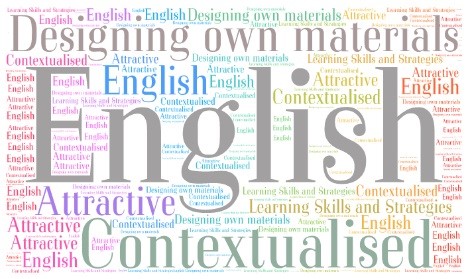
The role of materials and how they influence the teaching-learning process. Needs analysis as a tool for course and materials design. Analysis of expectations and objectives. Design of questionnaires for needs analysis. Textbook evaluation. Materials evaluation. Evaluation of activities. Sequencing criteria for the design of connected activities. Long and short-term goals.
- Teacher: CHOQUE IVANA VERONICA

This class has been designed to help ESL/EFL teachers to create a rationale for their teaching by exposing them to a broad range of theory about general principles of teaching and learning, various approaches and methods applied to 2nd language teaching, the role of individual learner factors in language learning and motivation in foreign language learning.
It is expected that English language teachers will be able to draw upon this theoretical background and their own experience in order to design their own courses, meet learner needs, solve classroom problems, and make decisions while teaching.
- Manager: FRYSZBERG NATACHA
- Manager: MONTEROS ORNELLA VICTORIA
- Manager: PINTOS VERONICA LUISA
- Teacher: MIWSZUK AYELEN ABYGAIL

La asignatura aborda los principios y prácticas fundamentales de la gestión aplicada a instituciones dedicadas a la enseñanza de lenguas extranjeras. Se analizan los distintos tipos de organizaciones educativas —institutos, academias, escuelas y escuelas bilingües— y sus particularidades estructurales. Asimismo, se estudian las funciones de liderazgo y organización, la gestión de personal y de innovaciones pedagógicas, y los procesos de motivación y evaluación institucional.
- Manager: FRYSZBERG NATACHA
- Manager: MONTEROS ORNELLA VICTORIA
- Manager: PINTOS VERONICA LUISA
- Teacher: CASTAÑO CASTIGLIONI EVANGELINA IVONNE

English for Academic Purposes (EAP) has been designed to help freshmen develop academic writing skills. Your tutor will work to her fullest potential so as to let students see they can write academically as long as they truly show they want to become part of this whole new world.
Writing will be our main focus. However, we will not take writing as a means to an end but as an end in itself. We will not write to demonstrate knowledge but we will write to make our voices heard, to construct knowledge, and - most importantly - to share what we produce.
Basically, we will be engaged in a process of sharing, revising and editing. The act of sharing should not be perceived as an obligation but as invitation to reflect upon what we and others want to express.
The merge of mechanical skills, critical thinking and requirements in the field will help us grow as sound professionals who seek to pursue higher levels of advanced literacy.
The class demands a lot from students. It's true... but it offers many opportunities to learn by reflecting and sharing.
- Teacher: PINTOS VERONICA LUISA

This is the project or paper which wraps up your course of studies. You may design a classroom or school project, an action-research cycle or a case study.
- Teacher: PINTOS VERONICA LUISA
- Teacher: BARBERO MELINA BEATRIZ
- Teacher: CHOQUE IVANA VERONICA
- Teacher: PINTOS VERONICA LUISA
- Teacher: RACIG NELDA PATRICIA
